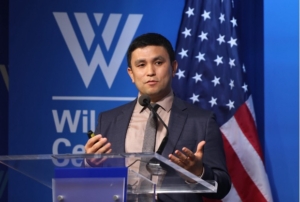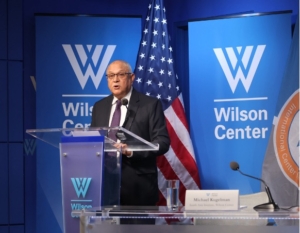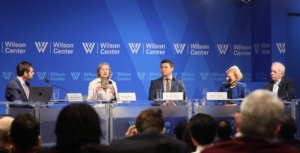Position: Senior MEL Specialist
Location: Jakarta, Indonesia
Integra and partners are pursuing the anticipated five-year USAID/Indonesia PRO – Monitoring, Evaluation, Collaborating, Learning, and Adapting – MECLA Platform (RFP No. TBD). This contract will support the implementation of the U.S. Government’s and USAID’s current priorities such as the Indo-Pacific Vision as well as future priorities that may arise during the life of the activity. This support encompasses activities related to the design, M&E, CLA, KM, and dissemination of results and learning throughout the program cycle.
The project will provide monitoring support services; designing and implementing performance, developmental, and impact evaluations and other studies, research, data analyses, and assessments; developing collaborating, learning and adapting initiatives; and providing short-, medium- and long-term consulting and advisory services and logistical support services to strengthen the implementation of USAID/Indonesia’s CDCS and enhance USAID’s organizational effectiveness.
The activities will be underpinned by cross-cutting support for localization, inclusive development, and partnerships with local stakeholders including the Government of Indonesia, private sector, civil society, and other development partners. USAID Indonesia programming focuses on issues such as democratic resilience and governance, economic growth, education, health, environment, and local institutional strengthening (see https://www.usaid.gov/indonesia/our-work for details).
Position Description: Integra is seeking a Senior MEL Specialist for the anticipated USAID/Indonesia MECLA activity. This will be a full-time position, pending award. The MEL Specialist will require experience in ensuring the MEL principles and priorities are coordinated and consistently applied in compliance with USAID and Integra principles, policies, and procedures.
Primary Responsibilities:
- Support the design and implementation of MEL activities across Indonesia, through data collection, monitoring, evaluation, and learning activities.
- Responsible for monitoring and tracking of performance indicators to ensure project activities/interventions are impactful and sustainable.
- Responsible for data collection, cleaning, compilation, and reporting, in line with USAID protocols, standards, and policies.
- Lead the development of MEL Plan, MEL Guide and Toolkit, and Work Plan. Develop Results Chains and Frameworks. Develop data collection instruments (tools and templates), trainings, etc.
- Lead or contribute to MEL Communities of Practice and working groups.
- Lead or contribute to MEL capacity strengthening efforts for USAID, local organizations and implementing partners.
- Support project reports development. Reporting and coordinating MEL information for contract reports and deliverables.
- Coordinate with Integra staff, Chief of Party and CLA teams to enable successful delivery of Mission task orders.
- Analyze and use project data to assess and improve project quality and performance.
- Contribute to collaborating, learning, and adapting (CLA) activities, events, and exercises.
- Contribute to data reporting and visualization for success stories, case studies, social media materials, etc.
- Manage multi-disciplinary and dynamic teams.
Qualifications:
- Advanced degree in economics, public policy, public administration, international relations, economics, business administration, law or a related discipline.
- Background in project cycle approach to planning and designing data collection strategies.
- 10 years of experience in data-collection and analysis, management systems, data interpretation, and integrating outputs into decision-making processes.
- Experience using project/program performance tracking indicators and developing theories of change.
- Experience identifying and setting and tracking monitoring indicators, data collection techniques and data analysis.
- Experience developing Results Frameworks and MEL Plans (i.e., AMELPs).
- Strong analytic and critical thinking skills in evaluation and visualization.
- Experience planning and designing MEL management systems.
- Familiar with USAID MEL work plans and data flow diagrams for M&E data collection, reporting, learning meetings, and data quality assessments.
- Can adapt and update log frames, indicator plans, and indicator tracking tables based on the activity situation.
- Familiar with quantitative and qualitative tools in adaptive management.
- Desire and ability to improve MEL initiatives by identifying best practices, field-tested lessons learned, and creative recommendations.
- Demonstrate excellent skills in technical writing experience in relevant areas, including queries, reports, and presentations.
- Proficiency with Microsoft, Adobe, R, Stata, SPSS, Power Bi, Nvivo preferred.
- Exceptional proficiency in written and spoken English, with fluency in Bahasa Indonesia a plus. Indonesian nationals strongly encouraged to apply.
- Strong familiarity with USAID MEL policies and procedures required.
- Strong management, communication, writing and interpersonal skills, including a proven ability in quality assurance for technical, reporting and other deliverables.
How to Apply: To respond to this position, please send your resume to jobs@integrallc.com with the title of the position in the subject line of your email.
Closing Date: October 31, 2024
Only shortlisted candidates will be contacted.
Integra provides equal employment to all participants and employees without regard to race, color, religion, gender, age, disability, sexual orientation, veteran or marital status.

 In the intricate dance of geopolitics, water security stands out as a common concern and a potential catalyst for collaboration. Central and South Asia, regions endowed with abundant rivers and basins, face the dual challenges of water scarcity and the impacts of climate change. USAID is working with Central Asia Governments and research institutions—under the Asia Emerging Opportunities (AEO) mechanism—to evaluate the status and possible causes of lower-than-usual regional water supplies. Over the past year, Integra has delivered snowmelt and glacier melt training modules in Central Asia using data from eight primary river basins to continue this work.
In the intricate dance of geopolitics, water security stands out as a common concern and a potential catalyst for collaboration. Central and South Asia, regions endowed with abundant rivers and basins, face the dual challenges of water scarcity and the impacts of climate change. USAID is working with Central Asia Governments and research institutions—under the Asia Emerging Opportunities (AEO) mechanism—to evaluate the status and possible causes of lower-than-usual regional water supplies. Over the past year, Integra has delivered snowmelt and glacier melt training modules in Central Asia using data from eight primary river basins to continue this work. Dr. Abror Gafurov, the Innovative Water & Environmental Solutions (IWES) lead researcher, delivered an informative presentation on MODSNOW, a groundbreaking tool designed to revolutionize water resource management by predicting snowmelt patterns in the Hindu Kush Himalayan region. The subsequent facilitated discussion, expertly moderated by Michael Kugelman, Director of South Asia at the Wilson Center, provided a platform for diverse perspectives and robust dialogue among panelists, including Dr. Eric Rudenshiold, Sherri Goodman, and Mary Melnyk. Audience engagement peaked during the dynamic question-and-answer session, where in-person and online attendees posed thought-provoking queries to the panelists. As the event drew to a close, it left a resonant message of hope and possibility, emphasizing the transformative potential of collaboration and innovation in safeguarding water resources for the future of Central and South Asia.
Dr. Abror Gafurov, the Innovative Water & Environmental Solutions (IWES) lead researcher, delivered an informative presentation on MODSNOW, a groundbreaking tool designed to revolutionize water resource management by predicting snowmelt patterns in the Hindu Kush Himalayan region. The subsequent facilitated discussion, expertly moderated by Michael Kugelman, Director of South Asia at the Wilson Center, provided a platform for diverse perspectives and robust dialogue among panelists, including Dr. Eric Rudenshiold, Sherri Goodman, and Mary Melnyk. Audience engagement peaked during the dynamic question-and-answer session, where in-person and online attendees posed thought-provoking queries to the panelists. As the event drew to a close, it left a resonant message of hope and possibility, emphasizing the transformative potential of collaboration and innovation in safeguarding water resources for the future of Central and South Asia.









































